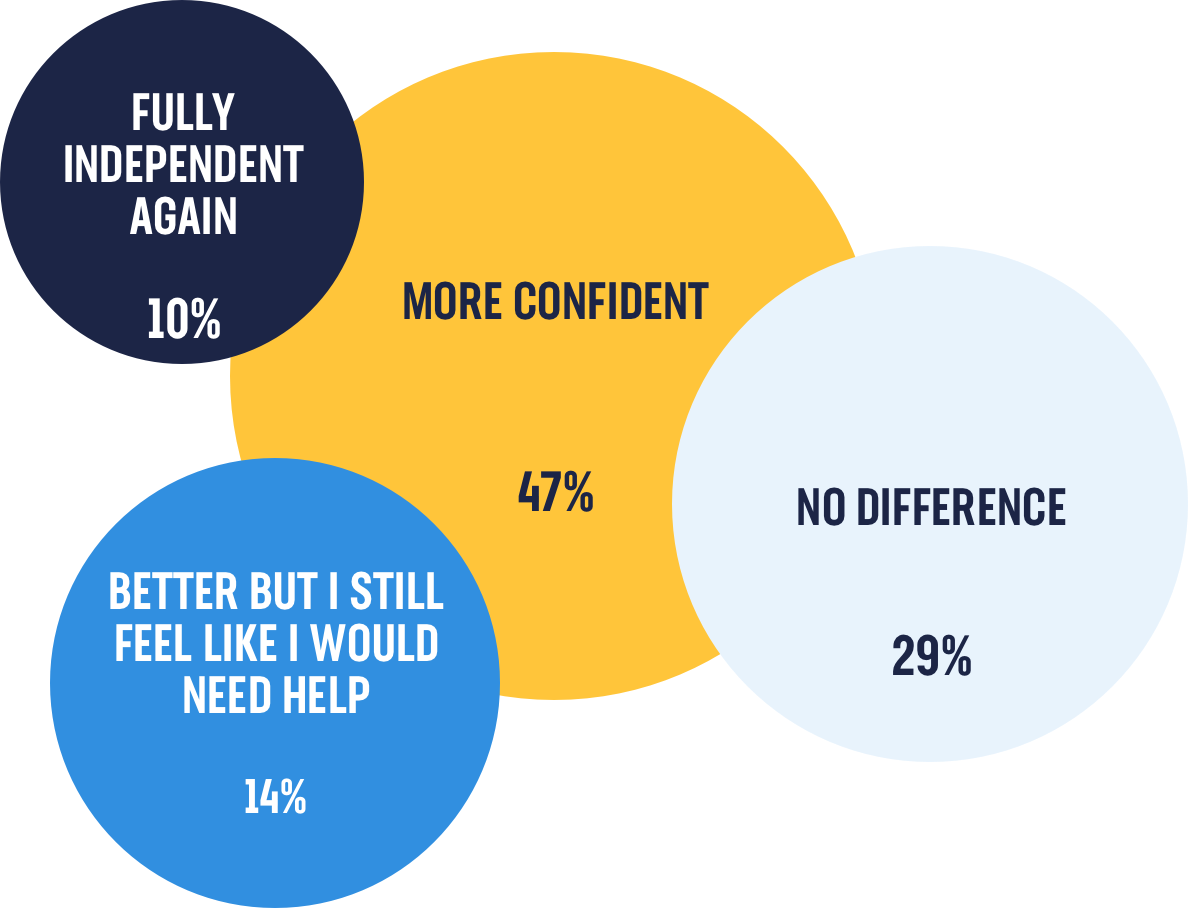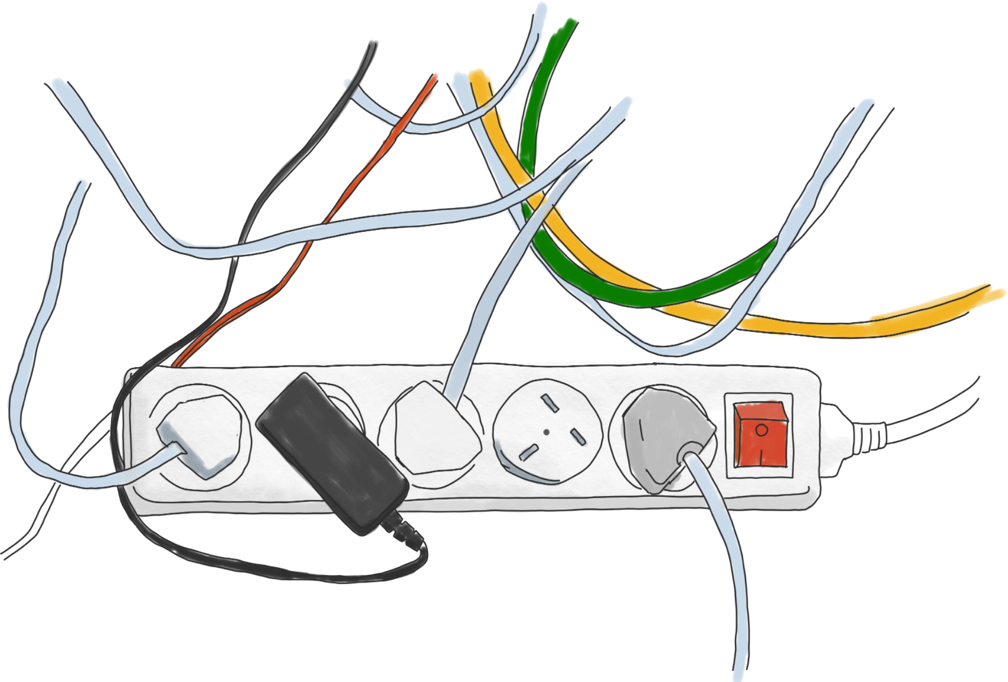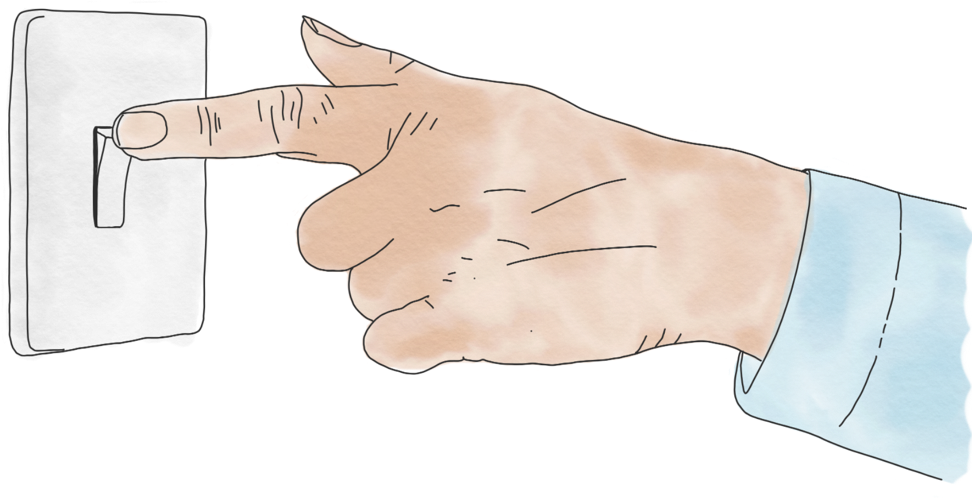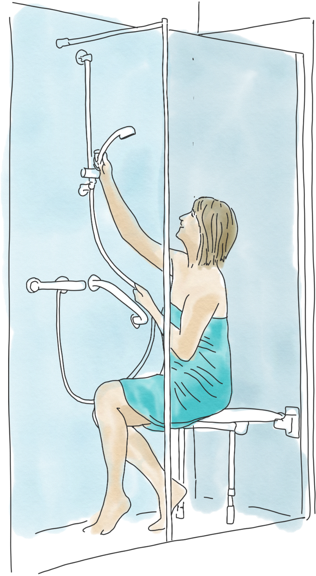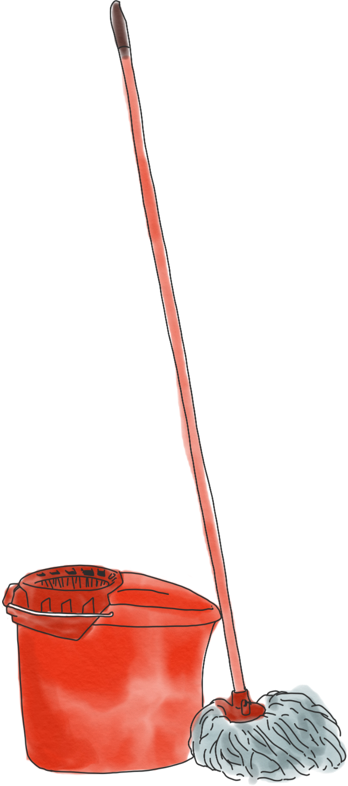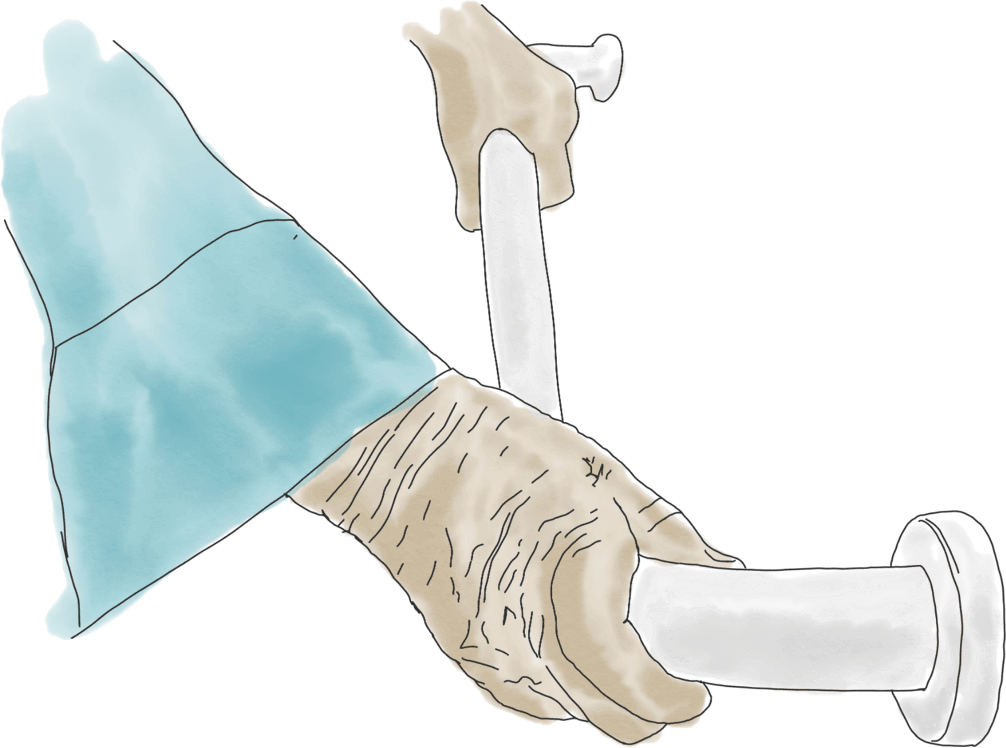HOUSEHOLD INJURY
WHERE & HOW
Our research findings reveal that rate of injury in the home is high, with 45% of over 55s saying they, or an elderly relative, have injured themselves. Although most people sustained only a minor injury (77%) , for a significant minority the incident caused a major (16%) or even a lifechanging injury (6%).

Falls account for an astonishing 75% of injuries, with respondents citing ‘falling due to loss of balance or other personal failing’ (40%) , ‘tripping in the house or garden’ (29%) and ‘slipping on a wet floor’ (6%) . Falls are also a frequent occurrence. One in five (19%) say they, or an elderly relative, have fallen more than twice in the past year.
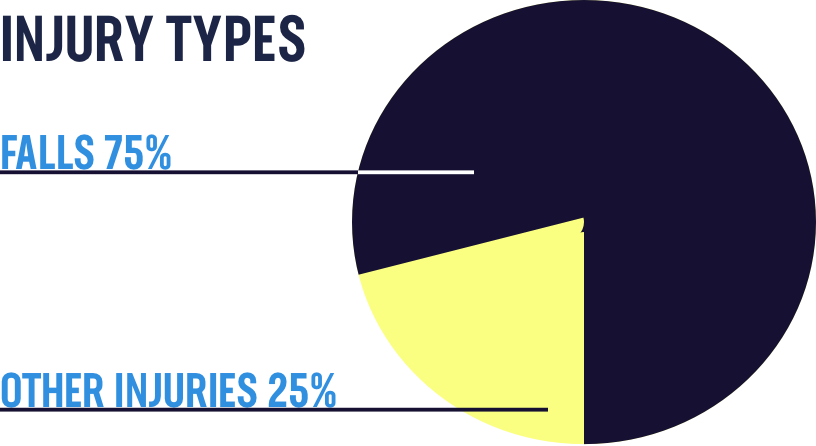
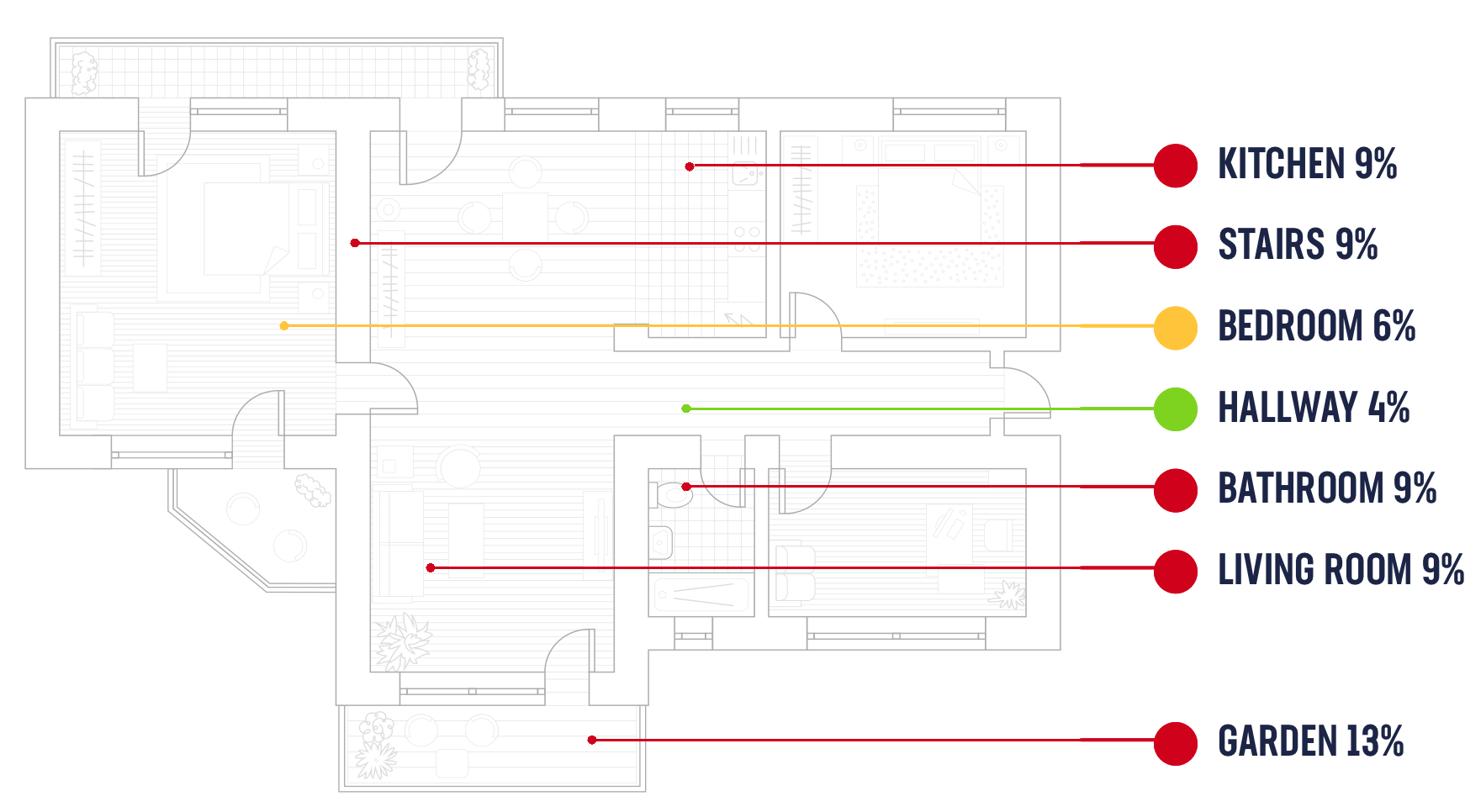
Falls are most likely to take place in the garden, although the living room, stairs, kitchen and bathroom follow closely behind. The fewest falls occur in the hallway, making it the safest space in the home.
A step too far
More than one in three (36%) over 55s think the stairs are the most dangerous place in the home, but only 9% of injuries are due to falling on the stairs.


